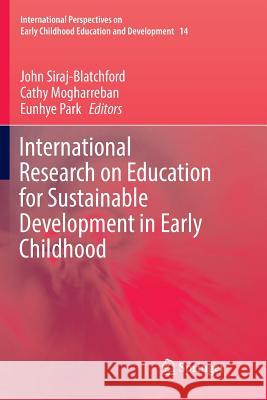International Research on Education for Sustainable Development in Early Childhood » książka
topmenu
International Research on Education for Sustainable Development in Early Childhood
ISBN-13: 9783319825243 / Angielski / Miękka / 2018 / 214 str.
Kategorie:
Kategorie BISAC:
Wydawca:
Springer
Seria wydawnicza:
Język:
Angielski
ISBN-13:
9783319825243
Rok wydania:
2018
Wydanie:
Softcover Repri
Ilość stron:
214
Waga:
0.32 kg
Wymiary:
23.39 x 15.6 x 1.22
Oprawa:
Miękka
Wolumenów:
01
Dodatkowe informacje:
Wydanie ilustrowane











